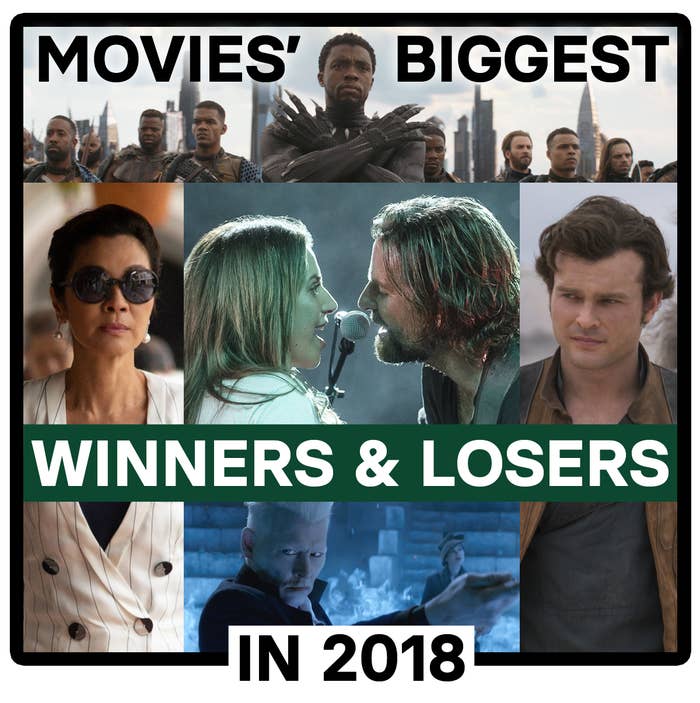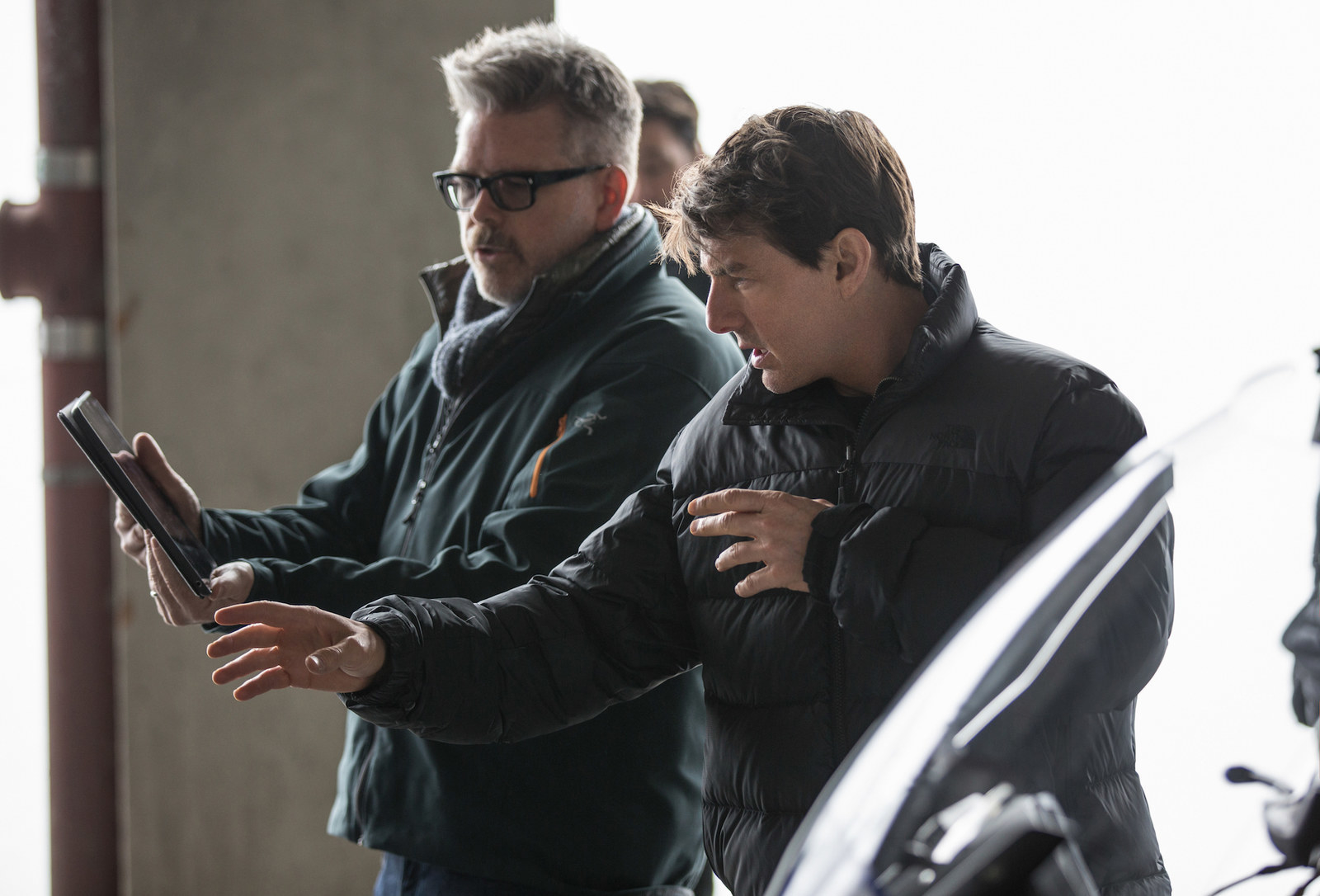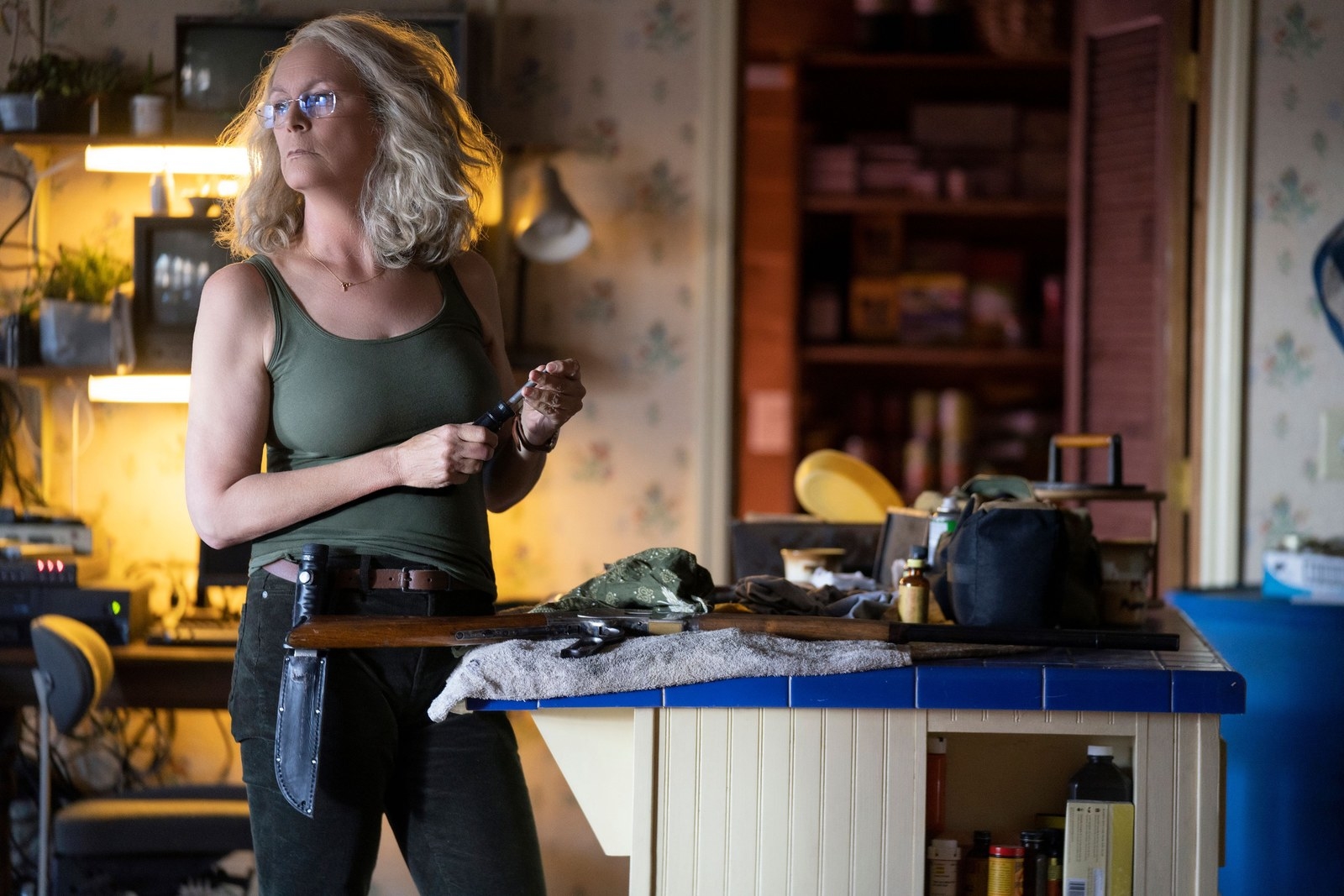
By the end of 2017, Hollywood had suffered a bruising year, with revenues and ticket sales down sharply. The business model of the movie industry — making films that cost tens of millions of dollars that require people to leave their homes to go to a theater to see them — seemed to be on a precipitous and irreversible decline.
Well, not so fast.
This year, domestic box office is up an astonishing 7%, according to projections from Comscore, with about $11.9 billion, and worldwide, movies made roughly $41.7 billion, a new record. Riding the tippy top of that wave, of course, is Disney, which earned well over $7 billion globally this year. Domestically, roughly 26.3% of all grosses went to Disney, continuing the company’s lopsided dominance over the industry since the relaunch of the Star Wars film franchise in 2015.
But for the first time since 2015, a Star Wars movie won’t top the domestic box office for the year — not even close. Instead, that honor goes to another Disney property, Marvel Studios’ Black Panther, a global blockbuster that dismantled several of Hollywood’s long-held assumptions (a nice way of saying abiding prejudices) about what a blockbuster movie is supposed to look like: It’s mostly set in Africa, with a predominantly black cast, and it opened in the heretofore historically moribund month of February.
There was a lot of that kind of thing in 2018. From Crazy Rich Asians to Bohemian Rhapsody to Aquaman, movies starring actors of color were major business this year in ways they’ve never been before because Hollywood execs had basically never tried before. It’s perhaps not surprising that the industry’s embrace of diversity and representation also presaged a year in which people started obsessively talking about the movies again, from endless memes about the shocking ending to Avengers: Infinity War to endless debates over the pop music politics of A Star Is Born.
The quixotic phenomenon of MoviePass no doubt helped to fuel that drive, too. The subscription-based moviegoing service with a business model that made zero financial sense nonetheless revived people’s love for going to the movies — if the price was right. No matter what becomes of MoviePass itself, the company has already driven two major movie theater chains — AMC and Cinemark — to launch their own subscription services, and Alamo Drafthouse is testing the waters with a pilot program as well.
It’s a smart move, because while box-office grosses were way up in 2018, it’s looking like domestic ticket sales only rose a small amount, and the pressures on theatrical distribution are only going to get more intense. Next year, Disney — fresh off its purchase of 20th Century Fox — and WarnerMedia — just purchased by AT&T — will launch their respective subscription services, and one presumes Apple will at some point tell the world how people will be able to watch all the shows and movies it’s been making for over a year now.
With so much change and upheaval facing Hollywood, here’s what worked and what very much didn’t in 2018.
WINNERS: Superhero movies
It may seem almost redundant to say that superhero movies “won” this year. Following the watershed one-two punch in 2008 of Iron Man (announcing the primacy of Marvel Studios) and The Dark Knight (confirming the genre’s artistic merits as well as commercial might), superhero movies have grown into the decade’s most consistently successful cinematic genre. But even on those terms, they dominated 2018 with unprecedented strength.
Black Panther, Avengers: Infinity War, and Incredibles 2 will finish the year as the first, second, and third highest-grossing films of the year domestically, each surpassing the $600 million mark, the first time the top three films for the year have reached that milestone. All told, through Dec. 26, superhero movies have earned $2.95 billion this year in the US and Canada alone, and $7.28 billion worldwide, also a new record. And for the first time ever, superhero movies accounted for over 25% of all domestic box-office grosses — a fivefold increase in the genre’s market share from 2010.
That’s in part because there were simply more superhero movies with a wide release in 2018 — 10, counting Once Upon a Deadpool, the PG-13 version of Deadpool 2 — than at any time…well, ever. But it’s also because so many of these movies were genuinely good, increasingly diversified in tone and style, and — especially in the case of Black Panther and Spider-Man: Into the Spider-Verse — resonant well beyond the flash and bang they’re engineered to deliver. Audiences responded in kind with unabashed and unparalleled enthusiasm, racing out to see a small army of superheroes repeatedly saving the world in a year in which it felt like the world was perpetually careening into disaster. But that’s a topic for another day.
LOSERS: Once hot franchises showing major fatigue
There was a time when making a movie set in the worlds of the Star Wars and Harry Potter franchises was thought to be as close to an automatic home run as you could find in Hollywood. Then — as has been the case with so many seemingly rock-solid cultural institutions — 2018 happened. Solo: A Star Wars Story became the first Star Wars movie ever to be seen as a financial disappointment. How disappointing? Adjusting for ticket price inflation, the next lowest-grossing live-action Star Wars movie (that’d be 2002’s Attack of the Clones) made more than double Solo’s $213.8 million domestic gross. Fantastic Beasts: The Crimes of Grindelwald’s box-office returns did not fall quite that far, but it’s still the lowest-grossing film by far in J.K. Rowling’s Wizarding World — not a promising trend for the second film in a purported five-film series.
Both projects started showing signs of trouble last year. Solo’s original directors Phil Lord and Christopher Miller were fired well into production; and Rowling and the rest of the Crimes of Grindelwald creative team publicly backed title star Johnny Depp in the wake of allegations of domestic abuse by his ex-wife Amber Heard. The bigger issue, however, was the movies themselves. As charming as star Alden Ehrenreich was as the young Han Solo, neither the film nor its marketing ever justified why we should care about the character’s origin story. As for Crimes of Grindelwald, well, as my colleague Alanna Bennett so ably put it, “There is a special kind of spectacle in watching something beloved and previously respected start to eat itself alive.”
These films were far from the only franchise extensions that failed to connect, but they at least maintained a robust sense of creative continuity with their predecessors. The Girl in the Spider’s Web, Pacific Rim Uprising, and even Goosebumps 2: Haunted Halloween all changed lead actors, directors, and screenwriters, and each suffered major box-office drops from their predecessors. It’s a lesson Hollywood just keeps forgetting to learn: It doesn’t matter that you’ve got a franchise if people aren’t keen on the film.
WINNERS: Ryan Coogler, Steven Caple Jr., Antoine Fuqua, Spike Lee, and Ava DuVernay
In the wake of all of Black Panther’s historic success, it’s important to be reminded that before Disney and Marvel Studios decided to make it, no major Hollywood studio had spent blockbuster money on a movie with a predominantly black cast (led by Chadwick Boseman and Michael B. Jordan) and a black director (Ryan Coogler), then marshaled a massive global marketing campaign to support it. It’s certainly been thrilling to witness that movie go on to become a billion-dollar-grossing worldwide phenomenon that’s widely expected to be the first superhero movie to earn an Oscar nomination for Best Picture. But Black Panther’s astronomic success also evokes all the stories that have gone untold and storytellers that have been unfulfilled because Hollywood executives couldn’t see the giant pile of money sitting just past their own prejudices.
Fortunately, Black Panther is not the only movie from this year to prove that backing black filmmakers telling stories about black people is, aside from artistic and ethical considerations, just really smart business. Creed II, starring Jordan and directed by relative newcomer Steven Caple Jr. (The Land), will easily surpass the $109.8 million domestic gross of its predecessor (directed by Coogler). Antoine Fuqua’s The Equalizer 2, starring box-office perennial Denzel Washington, has already outgrossed the original. With BlacKkKlansman, meanwhile, Spike Lee has earned some of the best reviews and box-office grosses of his storied career.
Ava DuVernay’s A Wrinkle in Time is a trickier case: While the adaptation of Madeleine L’Engle’s complex sci-fi classic did gross over $100 million domestically, the film cost so much to make that it almost certainly lost money for Disney. DuVernay’s directing career, however, is thriving. Less than a week after A Wrinkle in Time’s disappointing debut, Warner Bros. hired her to detect New Gods, based on the DC comic series by Jack Kirby. DuVernay was simply treated like so many talented white male directors who stumble at the box office: She was given the chance to try again.
LOSERS: YA adaptations The Darkest Minds and Mortal Engines
Yes, these films exist! I promise! The Darkest Minds, which opened Aug. 3, is based on Alexandra Bracken’s 2012 novel of the same name, about a small group of children living in a postapocalyptic society who possess extraordinary powers and are divided into separate factions for possibly nefarious purposes. If that sounds awfully familiar, audiences agreed: It’s earned just $12.7 million domestically, and $41.1 million worldwide. Mortal Engines is also set in a postapocalyptic society and is based on a popular YA novel (this one by Philip Reeve, released in 2001). But at least its story’s premise has a whiff of welp-I’ve-never-seen-that-before to it: Major cities are now mobile predators that roam the planet consuming smaller cities in a cutthroat quest for resources. The marketing for Mortal Engines never seemed to figure out how to sell that idea, though, and since opening worldwide this month, the movie has earned just $55.9 million to date, against a reported $100 million budget. The books these films were based on were the first in a series. The films…won’t be.
WINNERS: Musicals!
Even after Moulin Rouge! and Chicago revived the movie musical at the start of the millennium, the genre’s box-office track record has been wildly hit (Les Miserables, La La Land) or miss (Nine, Burlesque, Rock of Ages). This year, however, audiences proved (almost) insatiable when it came to watching people sing onscreen. After opening with an anemic $8.8 million on Dec. 20, 2017, The Greatest Showman went on to become the highest-grossing original movie musical of all time, earning an astounding $174.3 million domestically and $435 million worldwide — the vast majority of that in 2018. The ABBA musical Mamma Mia! Here We Go Again didn’t quite rake in the massive returns of its 2008 predecessor, but with $124.8 million in domestic returns and $393.8 million worldwide, it’s still a bona fide hit. And Mary Poppins Returns, with Emily Blunt stepping into Julie Andrews’ practically perfect shoes as the titular singing nanny, has already earned $70.9 million domestically just since opening on Dec. 19.
Then we have A Star Is Born and Bohemian Rhapsody. Neither movie is a traditional musical, insofar as when their respective characters break into song, they’re either creating or performing as professional musicians. But both movies use their wall-to-wall music as emotional and dramatic support to and commentary on the underlying story, and both have become massive word-of-mouth sensations in the process. A Star Is Born has made $200.5 million domestically and $382.5 worldwide, and is a major Oscar favorite heading into awards season. Bohemian Rhapsody has made $186.9 million and a whopping $669.2 million worldwide, and although the film was, er, less well-received, star Rami Malek has a strong shot at a Best Actor nomination.
WINNER: Crazy Rich Asians

To recap: This movie was the first Hollywood studio film with an all-Asian cast since 1993’s The Joy Luck Club; its subsequent massive success single-handedly resurrected the romantic comedy as popular — and highly lucrative — big screen entertainment; it launched the career of Henry Golding as Hollywood’s latest impossibly gorgeous leading man, and confirmed Constance Wu is a real-deal movie star; costar Michelle Yeoh has (rightfully) earned Oscar buzz for her supporting performance; and director Jon M. Chu and the rest of the creative team are reportedly developing a sequel based on author Kevin Kwan’s popular book series. Oh, and the film’s $238 million global gross is nearly eight times its $30 million budget. More! Of! This! Please!
LOSERS: Movies that had no business getting a wide release
The calculus behind opening a movie with a wide release — anything over 1,000 theaters in the US and Canada — should be rather simple: Is this a movie that at least 1 million people would naturally want to go see over opening weekend, and can the distributor give the film enough marketing support so people know the movie exists and is opening at a theater near them? If either answer is no — if the movie has more of a niche appeal, or if the company behind it has more limited resources — then rolling out the film in a smaller number of theaters over several weeks is a perfectly fine way to get your money back and maybe even generate some helpful word-of-mouth.
It seems simple enough. So when Neon chose to release the violent black comedy Assassination Nation in 1,403 theaters, it should have surprised no one that it debuted with just $1.1 million, ultimately earning $2 million. Amazon Studios released the credulity-straining ensemble sob-athon Life Itself in 2,609 theaters, and that film took in $2.1 million in its debut, and maxed out at just $4.1 million. STX Entertainment’s convoluted pharmaceutical satire Gringo opened with $2.7 million in 2,404 theaters, and grossed just shy of $5 million. The psychological thriller Unsane, from director Steven Soderbergh’s ill-fated we-can-do-it-all company Fingerprint Releasing, opened with $3.8 million and earned just $7.7 million. Even 20th Century Fox’s Bad Times at the El Royale, a crime thriller boasting a shirtless Chris Hemsworth as the villain, had a deliberate pace and serpentine story that proved to be too much of an acquired taste for a big splashy release; it opened in 2,808 theaters with just $7.1 million, grossing just $17.8 million total.
It’s unclear if any of these movies would have made more had their respective studios released them more cautiously. But it’s abundantly clear that opening them to a nationwide whimper killed these movies before they even had a chance to take off.
WINNERS: Tom Cruise and Christopher McQuarrie

While Tom Cruise’s box-office fortunes have dramatically fallen over the past decade, audiences apparently cannot get enough of watching him repeatedly put himself in mortal peril in Mission: Impossible movies. For Mission: Impossible — Fallout, the sixth in the franchise, Cruise even broke his ankle, and then basically insisted to director Christopher McQuarrie that the footage make it into the film. The result is the highest-grossing movie in the 22-year franchise, earning $220.2 million domestically and $791 million worldwide. Adjusting for domestic ticket price inflation downgrades that accolade somewhat, placing Fallout as the fourth highest-grossing film in the franchise. But in my heart — and many others! — it’s the best M:I movie yet, and it’s safe to say that even at 56, Cruise is nowhere near done risking grievous bodily harm for our entertainment.
LOSER: Shane Black
Speaking of long-lived franchises, people keep deciding for some reason to make movies about an alien Predator who comes to Earth to hunt humans (and, in two crossover movies, xenomorphs from the Aliens franchise!) for sport. The latest attempt, The Predator, came from writer-director Shane Black (Iron Man 3, The Nice Guys), and it should have been a full-circle accomplishment for him, since Black acted in the original 1987 Predator movie starring Arnold Schwarzenegger. Instead, all momentum for Black’s take on the franchise was instantly derailed after the Los Angeles Times reported that the filmmaker had hired a friend, Steven Wilder Striegel, for a scene with actor Olivia Munn, without informing Munn or studio 20th Century Fox that Striegel is a registered sex offender. When Munn learned of Striegel’s history — he served six months in jail for attempting to engage a 14-year-old distant relative in a sexual relationship over the internet — Munn informed Fox, and the studio cut his scene just days before the film was due to be locked. The fact that almost all of Munn’s costars in The Predator initially declined to comment on the incident certainly didn’t help, either. While the movie did open at number one, it limped to just a $51 million domestic gross, which, when adjusting for inflation, is the worst performance of any film in the franchise.
So since this wasn’t already the most obvious thing in the world, when hiring actors for your big franchise movie, don’t hire a registered sex offender and then not tell anybody.
WINNER: Jamie Lee Curtis

Sixteen years after Curtis was unceremoniously killed off as Laurie Strode in Halloween: Resurrection, her character’s, uh, resurrection in the quasi-reboot Halloween opened with a gargantuan $76.2 million domestically, the best debut ever for a slasher movie. It’s since earned $159.3 million in the US and Canada, and $253.5 million worldwide. Not too shabby for a horror movie starring a 59-year-old woman wearing a gray fright wig.
LOSERS: Awards-y biopics audiences shrugged at
In the last 15 years, 11 Oscar winners for Best Actor have played a real person, so it makes sense that heading into the 2018 awards season, there were several biopics that seemed primed for some major Oscar buzz. But almost none of them have managed to resonate with audiences. Not Ryan Gosling’s take on legendary astronaut Neil Armstrong in First Man (with $44.9 million domestically); not Viggo Mortensen and Mahershala Ali playing New Yawk tuff guy Tony Lip and piano virtuoso Don Shirley in Green Book ($29.6 million); not Steve Carell as Mark Hogancamp, an artist recovering from a physically debilitating attack, in Welcome to Marwen ($5.5 million since opening Dec. 21); not Hugh Jackman as ill-fated 1988 presidential candidate Gary Hart in The Front Runner ($2 million); and not Willem Dafoe as painter Vincent van Gogh in At Eternity’s Gate ($1.7 million). Some of these performances could still well earn an Oscar nod — especially Green Book, if voters can get past Mortensen’s n-word blunder and the objections of Shirley’s family to the film — but at this point, none of them are likely to earn much more at the box office.
DRAW: Dwayne Johnson
Johnson started the year on the highest note possible, earning the best grosses of his career outside the Fast and Furious franchise with Jumanji: Welcome to the Jungle, which made more than half of its $404.5 domestic gross in 2018 after opening on Dec. 20, 2017. Then the giant-monster-smash fest Rampage opened in April, and earned a middling $101 domestically; thanks to a strong showing in China, however, the movie clawed back $428 million worldwide. Then Johnson headlined the disaster thriller Skyscraper in July, and once again, China saved his box-office keister: The film grossed $304.1 million worldwide despite a muted $67.8 million in domestic returns. Between his HBO series Ballers and his upcoming NBC reality series The Titan Games, I dunno, maybe Johnson could work less? Just an idea!
